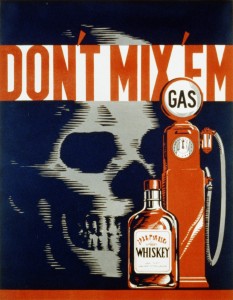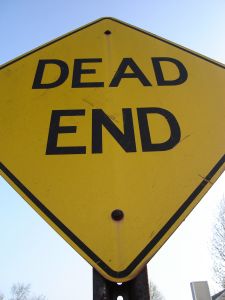Charlotte DWI and Criminal Defense Attorney J. Bradley Smith of Arnold & Smith, PLLC answers the question “Are breath test results always accurate?”
Seven really was a Charlotte man’s lucky number this [week]—or rather, 0.07 was.
Charlotte DWI and Criminal Defense Attorney J. Bradley Smith of Arnold & Smith, PLLC answers the question “Are breath test results always accurate?”
Seven really was a Charlotte man’s lucky number this [week]—or rather, 0.07 was.
J. Bradley Smith of Arnold & Smith, PLLC answers the question “What happens if I am convicted of a DUI or DWI in Charlotte North Carolina?”
The Kansas Supreme Court issued a decisive and important ruling late last month concerning the state’s implied consent law. Implied consent laws, for those that may be unclear, say that individuals who operate motor vehicles in the state have given their implied consent to submit to a chemical test to determine intoxication in the event they are pulled over by police. States with implied consent laws also criminalize refusal to submit to such chemical tests, meaning the refusal itself serves as the basis for a criminal prosecution.
Charlotte DWI Lawyer Brad Smith answers callers’ questions during a 30 minute radio interview with the Legal Forum. Recorded in Charlotte, Mecklenburg County North Carolina.
Most people have heard of ignition interlock devices before. People are vaguely familiar with the idea that a device is attached to your car that you must first blow into before the ignition will turn over. Beyond this bit of information, most people are in the dark about the specifics for how and when ignition interlock devices are used. To find out more about ignition interlock devices and how they work in North Carolina, keep reading.
Charlotte DWI and Criminal Defense Attorney J. Bradley Smith of Arnold & Smith, PLLC answers the question “Can the police search my car without a warrant?”
The Minnesota Court of Appeals recently issued a long-awaited opinion concerning the constitutionality of the state’s implied consent law. The Appeals Court affirmed the law, holding that a warrantless breath test qualifies as a valid search so long as it is connected to a lawful arrest.
Charlotte DWI Lawyer Brad Smith of Arnold & Smith, PLLC answers the question “What should I do if I have been pulled over and I have been drinking ?”
As the Kerrick trial dominates the Charlotte headlines, a different trial attracted the attention of Raleigh residents last week. On July 27, trial commenced in an action against a Raleigh couple accused of providing alcohol to minors at a 2014 wedding. Raleigh-based neurologist Dr. Charles Matthews, 59, and his wife, Kimberly Matthews, 52, were on trial in Wake County Superior Court, charged with four counts of aiding and abetting underage possession and consumption of alcohol.
Charlotte DWI and Criminal Defense Attorney J. Bradley Smith of Arnold & Smith, PLLC answers the question “Are breath test results always accurate?”
You thought it was July 4th weekend? You’re right, but it’s also “No Refusal Weekend” in Eugene, Oregon. Local and state police in Eugene plan to have prosecutors and judges on standby this weekend to obtain “blood draw warrants” against drivers who refuse to submit to alcohol content testing.
 This will prevent “people from avoiding full accountability,” police said. The U.S. Supreme Court confirmed in a 2013 case that police must obtain a warrant before drawing a person’s blood, except in cases of emergency. That case was called Missouri v. McNeely.
This will prevent “people from avoiding full accountability,” police said. The U.S. Supreme Court confirmed in a 2013 case that police must obtain a warrant before drawing a person’s blood, except in cases of emergency. That case was called Missouri v. McNeely.
The program in Eugene is unique because, evidently, prosecutors and magistrates will be available to issue warrants quickly. The local chapter of the American Civil Liberties Union gave its blessing to the arrangement; a representative said more warrants in blood-draw cases was a “good thing.”
This could be the dawn of the age of warrants en masse, as litigation in the wake of the McNeely decision may show. Many people consent to blood draws. Lawyers are now arguing that McNeely requires courts to consider whether, in the totality of the circumstances, consensual blood draws done without a warrant are constitutional.
Attorney J. Bradley Smith answering the question: “Should I ever plead guilty to a charge?”
Law enforcement officials across the State of North Carolina have agreed to join forces yet again to combat drunk driving. This year marks the fourth anniversary of State Highway Patrol officers working in conjunction with the Wildlife Resources Commission and the Alcohol Law Enforcement division to bust impaired drivers.
 The law enforcement groups will work together to crack down on drivers as well as boaters, a campaign dubbed “On the Road, On the Water, Don’t Drink and Drive.” The groups say that alcohol is responsible for hundreds of accidents, both on land and on water, and that the joint collaboration between the agencies can help lead to greater success.
The law enforcement groups will work together to crack down on drivers as well as boaters, a campaign dubbed “On the Road, On the Water, Don’t Drink and Drive.” The groups say that alcohol is responsible for hundreds of accidents, both on land and on water, and that the joint collaboration between the agencies can help lead to greater success.
In North Carolina, the law says that it is illegal for a driver in a motor vehicle to drink while operating the vehicle. Additionally, anyone found to be operating a motor vehicle with a BAC greater than 0.08 percent faces drunk driving charges. The law differs slightly with regard to boaters, given that boaters are allowed to consume alcohol while operating their boats. However, boaters are held to a similar standard of intoxication and can be charged with Boating while intoxicated, or BWI if found to have a BAC greater than 0.08 percent.
The agencies say they will work together between Memorial Day and Labor Day, a traditionally busy time for drunk driving arrests. Checkpoints will be put in place across the state, both on land and on water, to ensure that drivers out for a good time are not legally impaired.
Attorney J. Bradley Smith answering the question: “What happens if I am convicted of a DUI or DWI in North Carolina?”
Though it may sound crazy, it is actually possible for people to be arrested and charged with drunk driving in North Carolina without being found driving a vehicle. How could that happen? Keep reading to find out more about what North Carolina law says about drunk driving.
The law in North Carolina clearly says that for a person to be convicted of impaired driving, he or she must be found to operate a vehicle while under the influence of an impairing substance. Though this may seem clear cut, the statutes further specify this broad statement and explain that a person can be found to have “operated” a car if he or she is in actual physical control of that vehicle.
Actual physical control
Actual physical control has been defined by many courts as when a driver has the keys to the vehicle either in the ignition or near the ignition and has the ability to operate the car on short notice. Though the person may not actually be driving, it would not take much effort to put the car into motion, thus endangering others.
Attorney J. Bradley Smith answering the question: “What should I do if I have been pulled over and I have been drinking?”
A man from Gaston County, NC was arrested this week and now stands accused of drunk driving in an accident that took place earlier this year and left a man dead. Anthony Lamar Ogden, 59, was arrested and charged with felony DUI in which death results. He’s now being held without bond in a York County Detention Center.
 According to authorities, Ogden was one of three drivers involved in a three-vehicle pileup, which happened back in January. The crash occurred on U.S. 21 just about a mile south of Fort Mill. The crash began a little before 7 p.m. when cars driven by Sherrell Wright and Alva Terrell had come to a stop on U.S. 21. Shortly thereafter, Ogden crashed into the back of Terrell’s Chevrolet, which was then pushed into the back of Wright’s Nissan.
According to authorities, Ogden was one of three drivers involved in a three-vehicle pileup, which happened back in January. The crash occurred on U.S. 21 just about a mile south of Fort Mill. The crash began a little before 7 p.m. when cars driven by Sherrell Wright and Alva Terrell had come to a stop on U.S. 21. Shortly thereafter, Ogden crashed into the back of Terrell’s Chevrolet, which was then pushed into the back of Wright’s Nissan.
Police say that while all three drivers were thankfully wearing seat belts at the time of the crash, the severity of the accident was so great that serious harm resulted nonetheless. All three drivers were taken to area hospitals for treatment of their injuries, though Terrell, who absorbed the brunt of the impact of the crash, suffered the most serious injuries. Terrell died three days after the accident at Carolinas Medical Center in Charlotte.
According to family members, Terrell was on his way home from a shift at Walmart where he worked as a cashier. The 74-year-old man was taking blood thinners, which contributed to his death because emergency medical responders and doctors struggled to control his bleeding.
Attorney J. Bradley Smith answering the question: “What happens if I am convicted of a DUI or DWI in North Carolina?”
One drunk driver from Lincoln County, North Carolina is facing some serious criminal charges this week after police say he dragged an officer nearly 40 feet and later spit blood in the man’s face.
 According to authorities, the encounter began at around 11:30 p.m. last Wednesday when 20-year-old Jake Nelson was spotted running a red light on Highway 16. An officer saw Nelson and tried pulling him over. However, rather than comply, Nelson chose to run, a decision that could now cost him dearly.
According to authorities, the encounter began at around 11:30 p.m. last Wednesday when 20-year-old Jake Nelson was spotted running a red light on Highway 16. An officer saw Nelson and tried pulling him over. However, rather than comply, Nelson chose to run, a decision that could now cost him dearly.
After speeding away from the officer, Nelson is said to have driven off down several smaller side roads, nearly losing control of his vehicle at one point. Finally, Nelson ran out of room to drive after making a wrong turn down a dead end street. The arresting officer approached Nelson’s car, but the young man initially refused to roll down the window. After a while, Nelson agreed to crack the window, at which point the officer says he clearly smelled alcohol.
Backup soon arrived to help the first officer arrest Nelson who still refused to get out of the vehicle. The first officer then stuck his arm through the cracked window to try and unlock the door when Nelson rolled the window up and put the car into drive. The vehicle then slowly rolled for more than 40 feet, dragging the officer the entire way.
Police say they were only able to subdue Nelson after the officer whose hand was caught in the door finally got ahold of his Taser and used it on the young man. In the subsequent tussle, police say nelson spit blood on the officer.